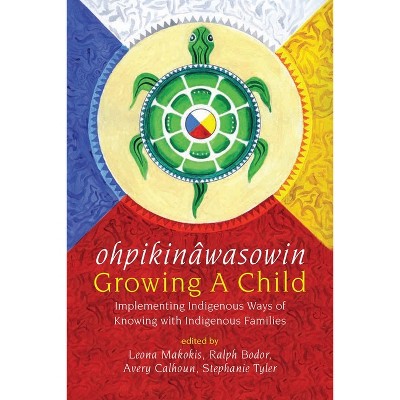About this item
Highlights
- Realizing a good life is almost always defined in material terms, typified by individuals (usually men) who have considerable wealth.
- About the Author: Elizabeth Comack is a Distinguished Professor Emerita in the Department of Sociology and Criminology at the University of Manitoba.
- 256 Pages
- Social Science, Indigenous Studies
Description
About the Book
"Realizing a good life is almost always defined in material terms, typified by those individuals (usually men) who have accumulated considerable wealth. But this construction of a good life is a deception that belies the classed, gendered, and racialized bases of the social supports that enable the 'self-made man' to realize his wealth. Instead, this book turns to Indigenous knowledge about realizing a good life, such as the Cree notion of seeking mino-pimatisiwin, to explore how marginalized men endeavour to overcome systemic inequalities in their efforts to achieve wholeness, balance, connection, harmony, and healing. Twenty-three men, most of whom are Indigenous, shared their stories of this journey. For most of the men, their pathway started in challenging circumstances. As children, they were confronted with the impacts of intergenerational trauma, broken families and child welfare interventions, racism and bullying, and physical and sexual abuse. Turning to drugging and drinking as a way to cope with the pain generated by these harsh experiences or joining a street gang with other disaffected youth set many on a pathway into jail. Once caught in the criminal justice net, realizing a good life became a more daunting project given the imprint of that experience on their identities and life chances. Despite the traumas and setbacks, some of the men have made great strides to realize a good life. The men tell us how they got out of the problem, displaying insights on the ways they have been able to maintain sobriety, navigate systemic barriers, and forge connections and circles of support that have enabled them to establish the basis for living a good life. Ultimately, it came down to social supports -- and caring. As one man put it, change happened when he 'had to care for somebody else in a way that I wanted to be cared for.'"--Book Synopsis
Realizing a good life is almost always defined in material terms, typified by individuals (usually men) who have considerable wealth. But classed, gendered, and racialized social supports enable the "self-made man." Instead, this book turns to Indigenous knowledge about realizing a good life to explore how marginalized men endeavour to overcome systemic inequalities in their efforts to achieve wholeness, balance, connection, harmony, and healing.
Twenty-three men, most of whom are Indigenous, share their stories of this journey. For most, the pathway started in challenging circumstances -- intergenerational trauma, disrupted families and child welfare interventions, racism and bullying, and physical and sexual abuse. Most coped with the pain through drugging and drinking or joining a street gang, setting many on a trajectory to jail. Caught in the criminal justice net, realizing a good life was even more daunting as their identities and life chances became barriers. Some of the men, however, have made great strides to realize a good life. They tell us how they got out of "the problem," with insights on how to maintain sobriety, navigate systemic barriers, and forge connections and circles of support. Ultimately, it comes down to social supports -- and caring. As one man put it, change happened when he "had to care for somebody else" in a way he wanted to be cared for.About the Author
Elizabeth Comack is a Distinguished Professor Emerita in the Department of Sociology and Criminology at the University of Manitoba. Comack's work in the sociology of law and feminist criminology has been instrumental in setting the course for Canadian scholarship. She is a member of the Manitoba Research Alliance, a consortium of academics and community partners engaged in research addressing poverty in Indigenous and inner-city communities. Comack is the author or editor of 13 books, including Coming Back to Jail: Women, Trauma, and Criminalization; "Indians Wear Red" Colonialism, Resistance, and Aboriginal Street Gangs (co-authored with Laurie Deane, Larry Morrissette, and Jim Silver); and Racialized Policing: Aboriginal People's Encounters with Police.
Shipping details
Return details
Trending Non-Fiction












